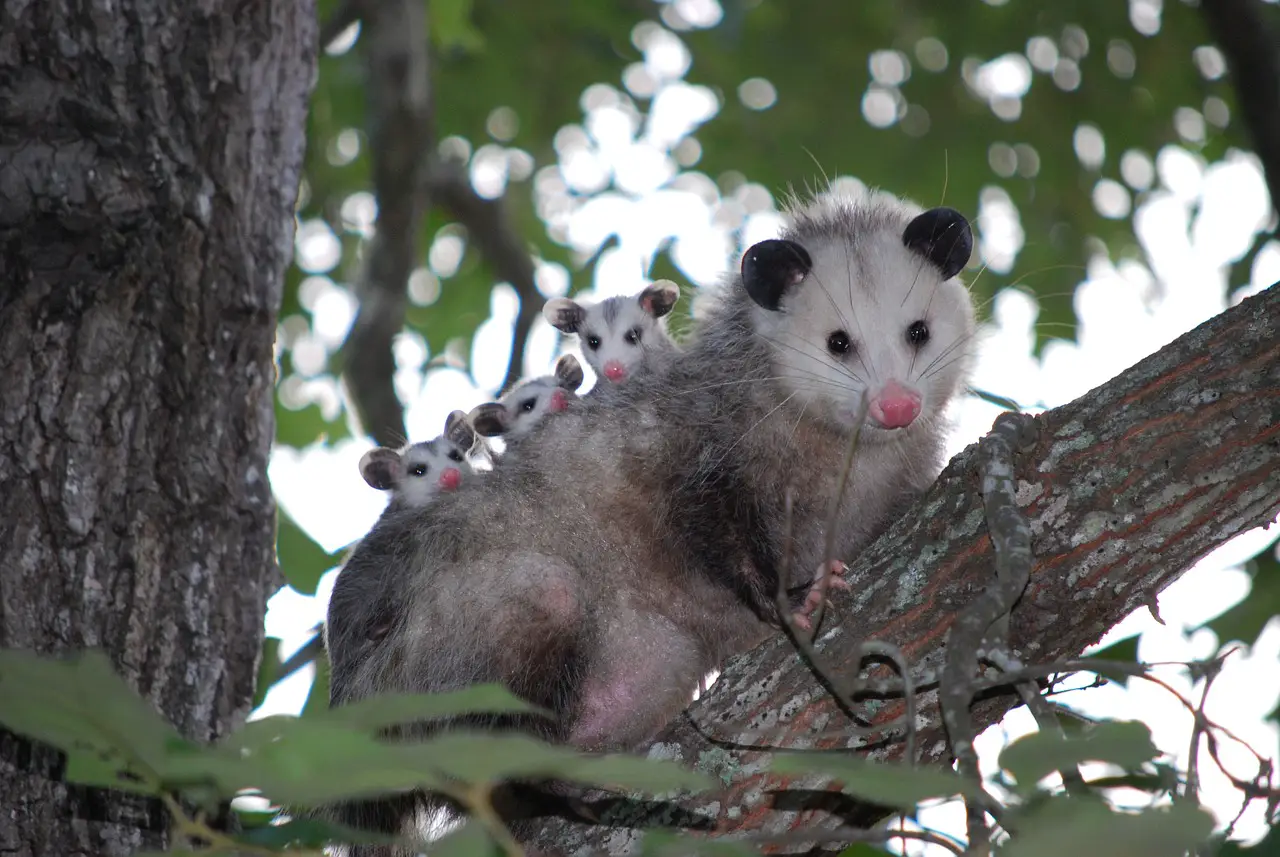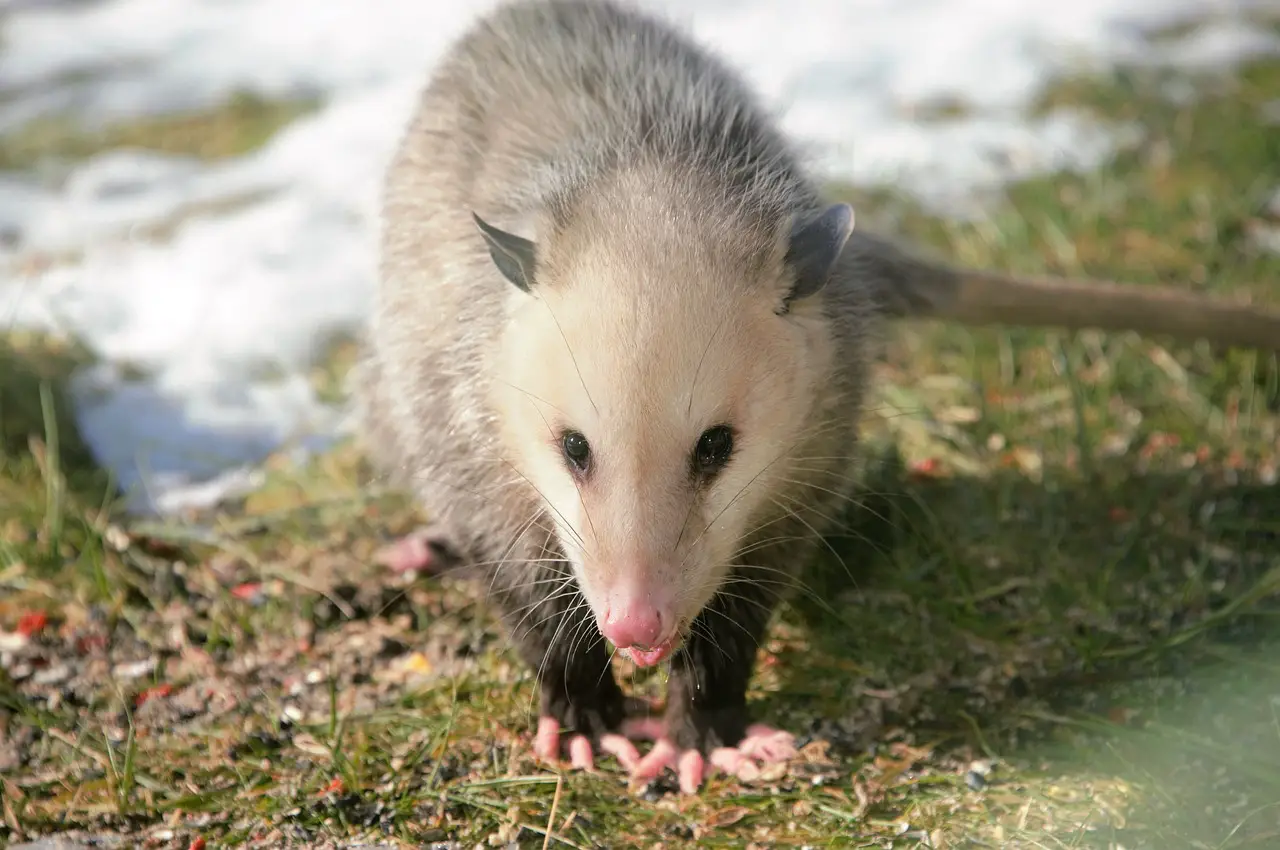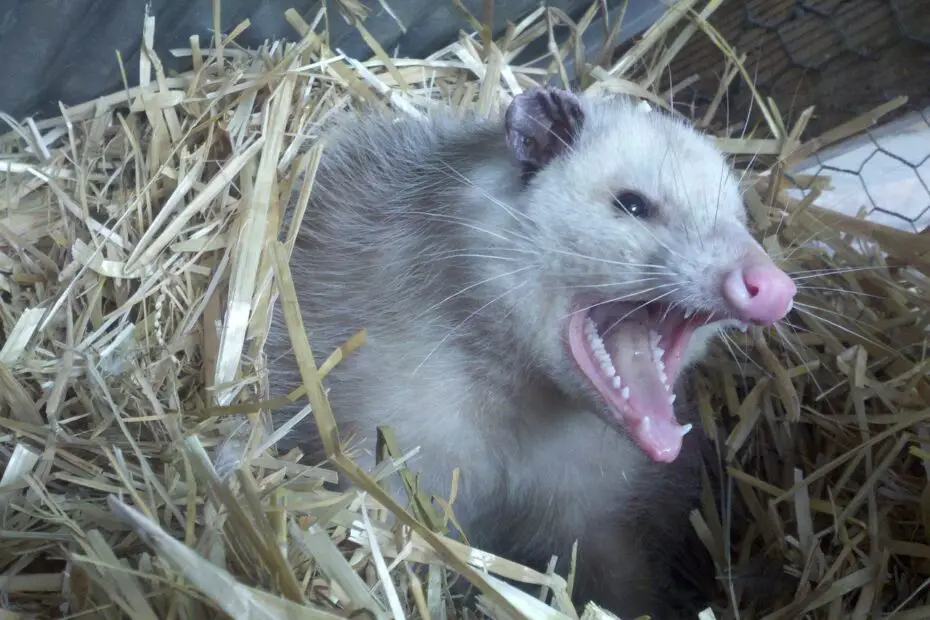Have you ever spotted a possum lurking in your backyard or crossing the road at night? These elusive creatures often evoke a sense of curiosity and intrigue. In this article, we’ll dive into the enchanting world of possums, exploring their physical characteristics, behavior, adaptation to urban environments, and the importance of their conservation. Get ready to unravel the mysteries surrounding these unique marsupials!
You may also want to read about finger monkeys.
What is a Possum?
Possums are small to medium-sized marsupials that belong to several different families, including the Phalangeridae and Didelphidae families. Before we delve further, let’s clarify the distinction between possums and opossums.

Differentiating Possums and Opossums
While the terms “possum” and “opossum” are often used interchangeably, they refer to different animals. Possums are native to Australia, New Guinea, and nearby islands, while opossums are found in North and South America. For the purpose of this article, we will focus on possums.
Physical Characteristics
Possums exhibit a range of physical characteristics, but some common features include a compact body, a pointed snout, and sharp claws for climbing. They have a fur-covered prehensile tail that aids in balance and tree-dwelling. Their fur can vary in color, from gray to brown, and some species have distinctive markings or patterns.
Habitat and Distribution
Possums have a diverse range of habitats, from rainforests to woodlands and even urban areas. They are primarily found in Australia, with a few species also inhabiting New Guinea and nearby islands. These adaptable marsupials have successfully colonized different environments and can thrive in both rural and urban settings.
Possum Behavior and Lifestyle
Possums are primarily nocturnal creatures, which means they are most active during the night. Let’s explore their behavior, diet, and reproductive habits.
Nocturnal Habits
Being nocturnal, possums have adapted to the darkness by developing keen senses of hearing and smell. They are excellent climbers and spend a significant amount of their time in trees, using their prehensile tails to grip branches. At night, possums forage for food, exploring their surroundings in search of fruits, leaves, flowers, nectar, and small invertebrates.
Diet and Feeding Habits
Possums have an omnivorous diet, which means they consume a variety of foods. Their preferences can vary based on their species and the available resources in their habitat. Some possums are specialized herbivores, while others may include insects, eggs, or even small vertebrates in their diet. Their ability to adapt their feeding habits contributes to their success in different environments.
Reproduction and Offspring
Possums have a unique reproductive system. Females have a pouch where they nurture their young, called joeys. After a short gestation period, the underdeveloped joeys crawl into the mother’s pouch, where they continue to develop and nurse. They stay in the pouch for several months before gradually venturing out, riding on their mother’s back as she moves through the trees.

Possums as Urban Dwellers
Possums have shown remarkable adaptability to urban environments, often venturing into residential areas and gardens. Let’s explore their relationship with urban settings and the potential challenges they may face.
Adaptability to Urban Areas
Possums have embraced urbanization, utilizing trees, rooftops, and gardens as their new habitats. They are known to adapt their diets to include food sources commonly found in urban areas, such as fruits from backyard trees or scraps left behind by humans. Their presence adds a touch of wilderness to urban landscapes.
Potential Challenges
While possums can coexist with humans in urban settings, conflicts can arise. They may raid gardens or cause disturbances by vocalizing during the night. It’s important to strike a balance between appreciating their presence and implementing measures to minimize potential nuisances.
Possum Conservation
Conserving possum populations is essential to maintain the delicate balance of ecosystems. Let’s discuss the importance of possum conservation and the measures being taken to protect these captivating creatures.
Preserving possum habitats, implementing sustainable land-use practices, and raising awareness about their ecological significance are vital steps towards their conservation. Additionally, providing nesting boxes and creating wildlife corridors can help facilitate their movement and enhance their chances of survival.
Conclusion
Possums offer a glimpse into the beauty and adaptability of the natural world. From their unique physical characteristics to their nocturnal habits and ability to thrive in urban environments, these marsupials continue to captivate our imagination. By understanding their behavior, appreciating their presence, and supporting conservation efforts, we can ensure the long-term survival of possums and the preservation of our diverse ecosystems.
FAQs
1. Are possums dangerous to humans?
Possums are generally not aggressive towards humans. However, if they feel threatened or cornered, they may exhibit defensive behaviors. It’s best to give them space and avoid direct contact.
2. Can possums be kept as pets?
In many regions, it is not legal to keep possums as pets due to their specific care requirements and their status as protected wildlife. It’s important to respect wildlife regulations and appreciate possums in their natural habitats.
3. Do possums carry diseases?
Possums can carry certain diseases, including ticks and fleas. However, the risk of transmission to humans is relatively low. Taking basic precautions such as avoiding direct contact and maintaining good hygiene can minimize any potential risks.
4. How can I deter possums from my garden?
To deter possums from your garden, consider installing motion-activated lights, fencing, or using natural deterrents like strong-smelling plants or predator urine. It’s important to provide alternative food sources and nesting options to encourage them to seek habitats away from human-populated areas.
5. Why are possums important for the environment?
Possums play a crucial role in ecosystems as seed dispersers and pollinators. They contribute to the health and diversity of plant populations and help maintain the balance of natural communities.
